Feature
-
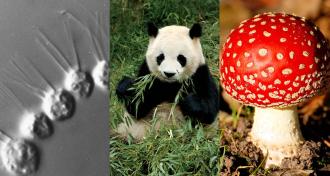 Life
LifeThe tree of life gets a makeover
Biology’s tree of life has morphed from the familiar classroom version emphasizing kingdoms into a complex depiction of supergroups, in which animals are aligned with a slew of single-celled cousins.
By Susan Milius -
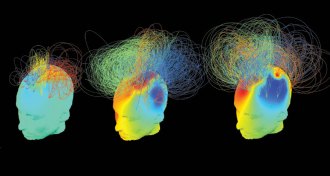 Neuroscience
NeuroscienceBrain activity in unconscious patients offers new views of awareness
As more people survive serious brain injury, researchers are using EEG and fMRI to learn who is aware inside an unresponsive body.
By Laura Beil -
 Neuroscience
NeuroscienceSpecial Report: Dimensions of Time
Science News writers report on the latest scientific investigations into time’s place in the physical, biological and mental worlds.
-
 Science & Society
Science & SocietyA brief history of timekeeping
For millennia, humans have harnessed the power of clocks to schedule prayers, guide ocean voyages and, lately, to chart the universe.
-
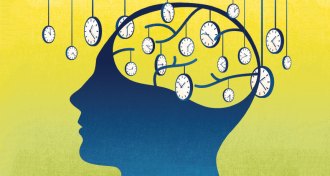 Neuroscience
NeuroscienceHow the brain perceives time
To perceive time, the brain relies on internal clocks that precisely orchestrate movement, sensing, memories and learning.
-
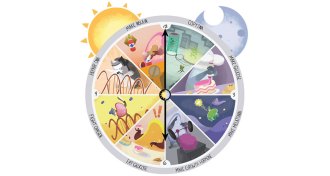 Life
LifeThe origin of biological clocks
Most of Earth’s creatures keep time with the planet’s day/night cycle. Scientists are still debating how and why the circadian clocks that govern biological timekeeping evolved.
-
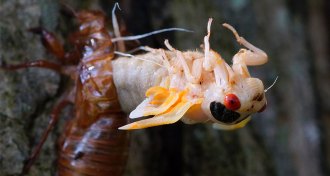 Animals
AnimalsSome animals’ internal clocks follow a different drummer
Circadian clocks in some animals tick-tock to a different beat.
-
 Planetary Science
Planetary SciencePluto: A timeline of 85 years of discovery
Several observations in the last 85 years have given astronomers a little more information about Pluto, and the July 2015 flyby will offer the closest look yet at the solar system's far-flung satellite.
-
 Physics
PhysicsThe arrow of time
Gravity may explain how time always runs forward, even though the laws of physics should permit it to run backward.
By Andrew Grant -
 Health & Medicine
Health & MedicineE-cigarettes proving to be a danger to teens
E-cigarettes have surpassed cigarettes as the most commonly used tobacco product among teenagers. Medical researchers are sounding the alarm.
By Janet Raloff -
 Quantum Physics
Quantum PhysicsQuantum dots get a second chance to shine
Quantum dots, semiconductor particles that can emit a rainbow of colors, have been put to work observing living cells, with possible benefits for medical diagnosis.
-
 Health & Medicine
Health & MedicineRehab for psychopaths
Psychopaths often don’t fit movie stereotypes, but they share particular characteristics. New research shows that, contrary to popular thought, cognitive behavioral therapy can help some psychopaths stay out of prison.
By Bruce Bower